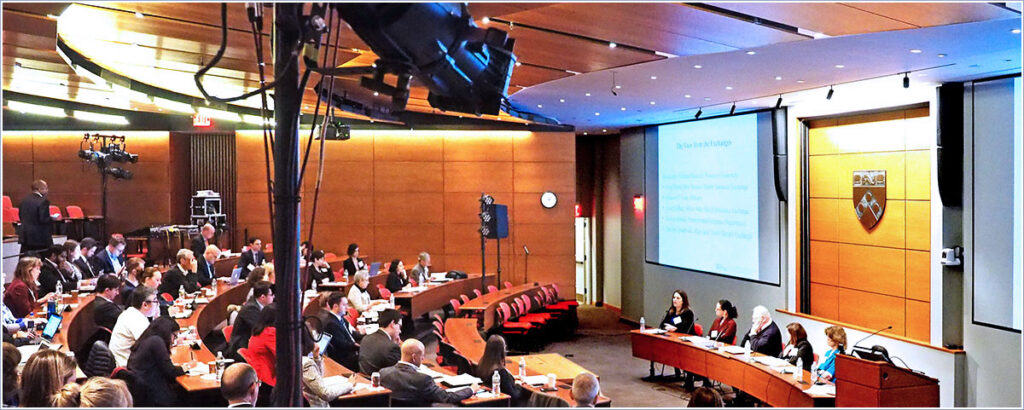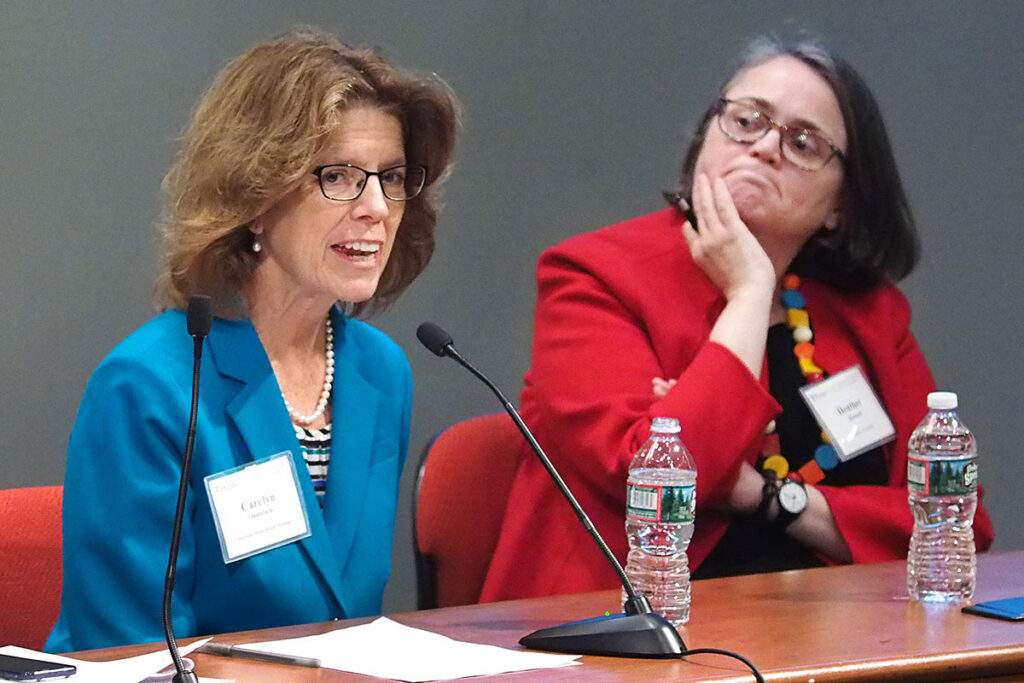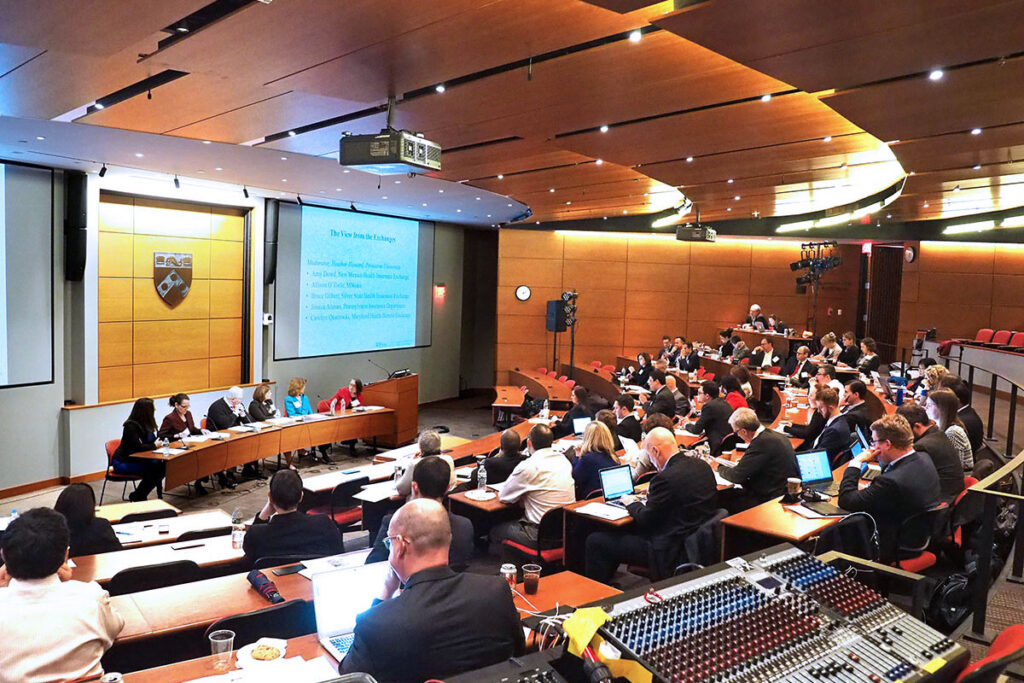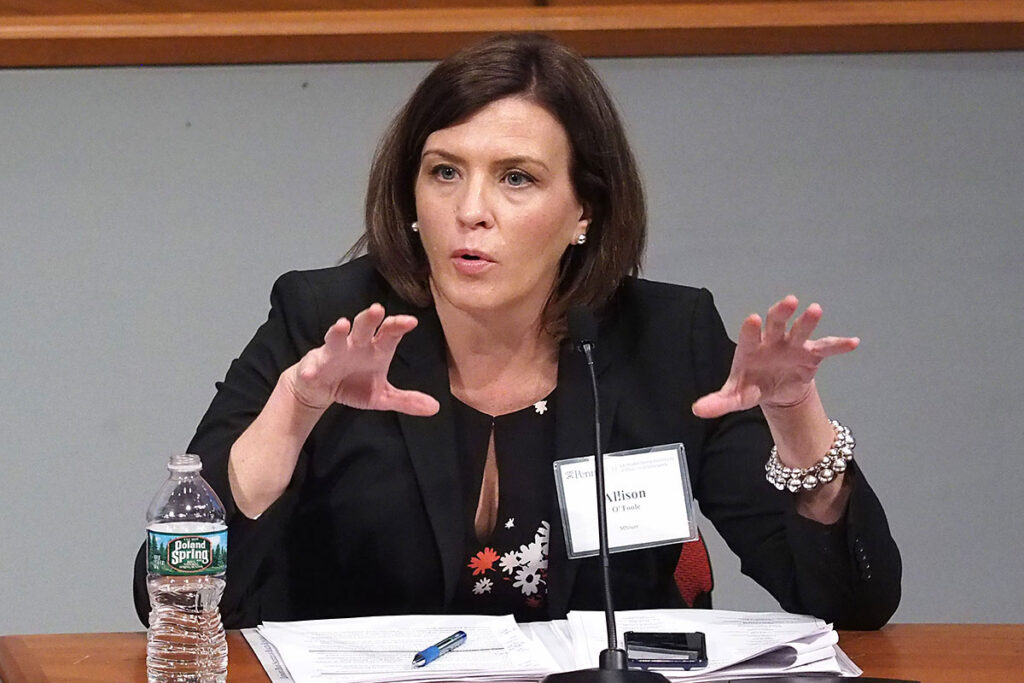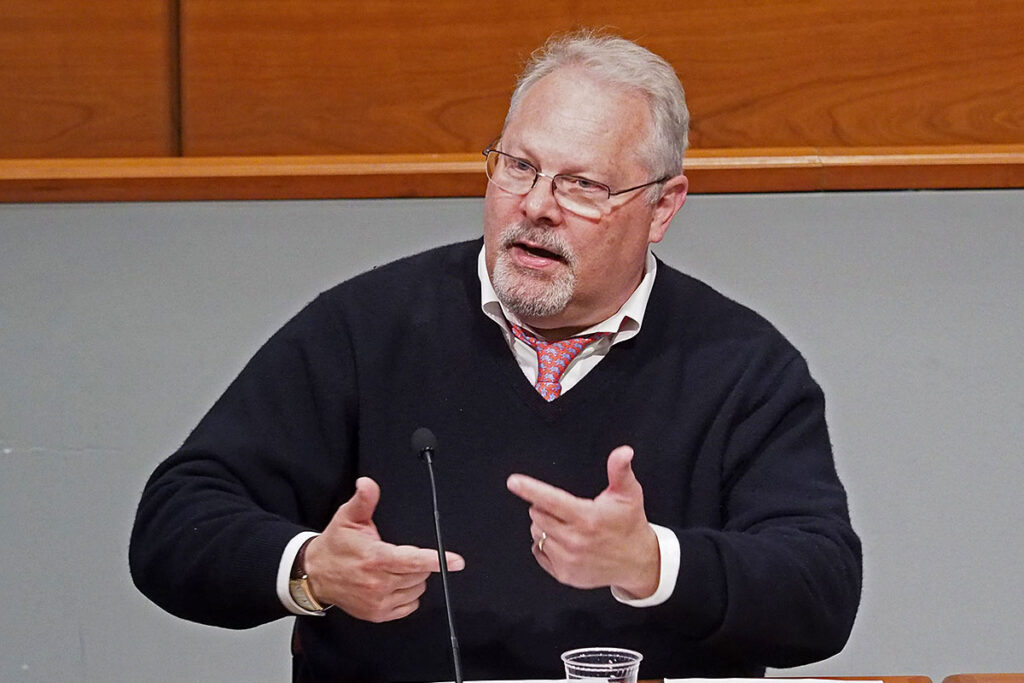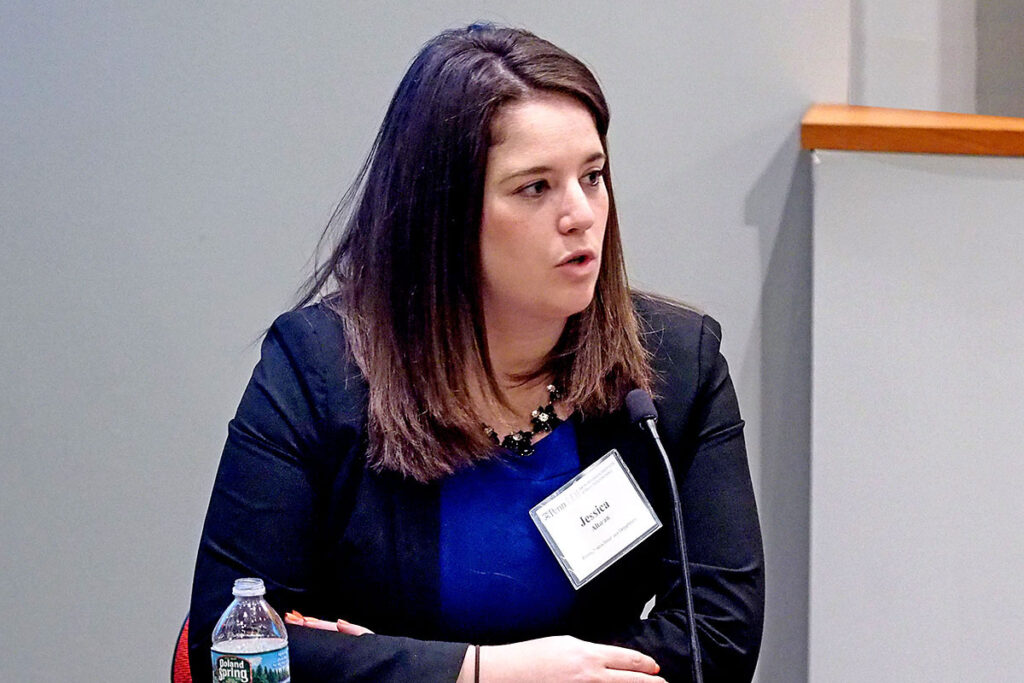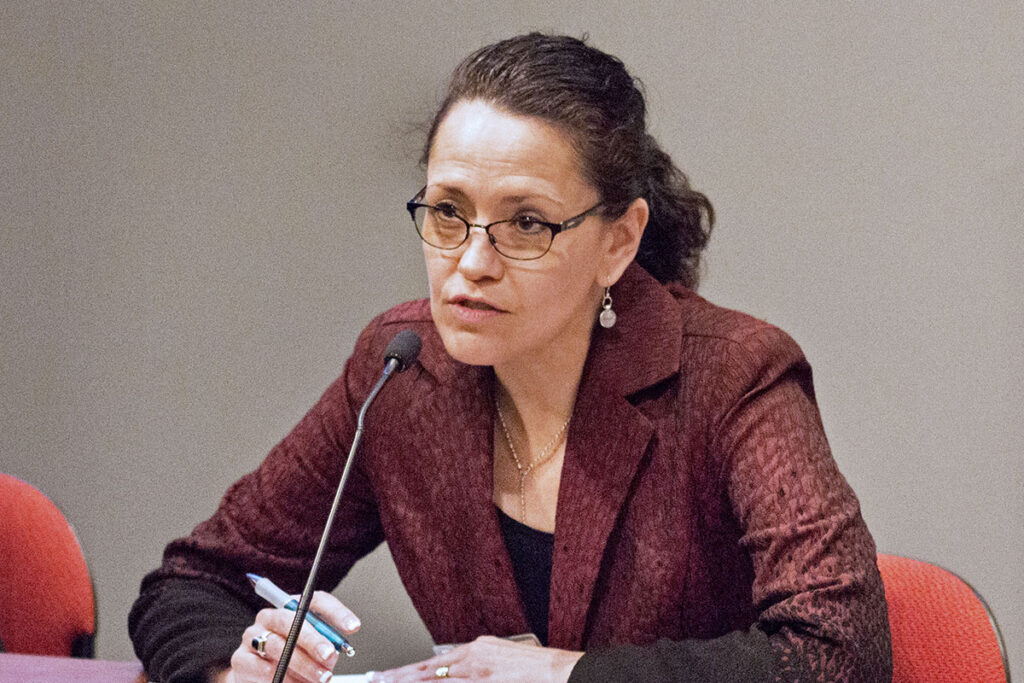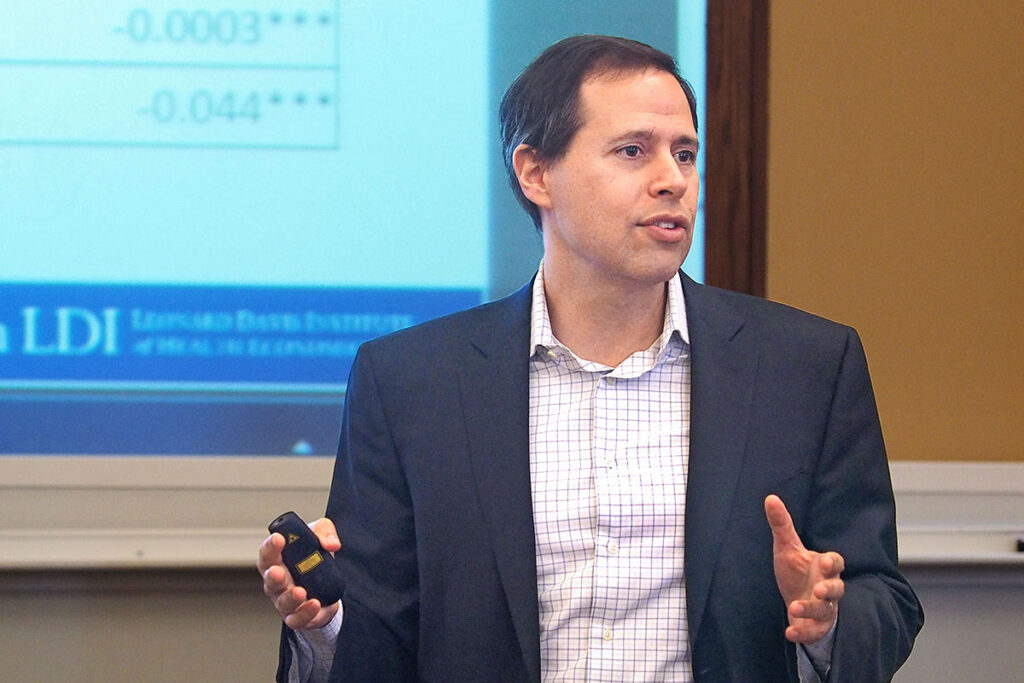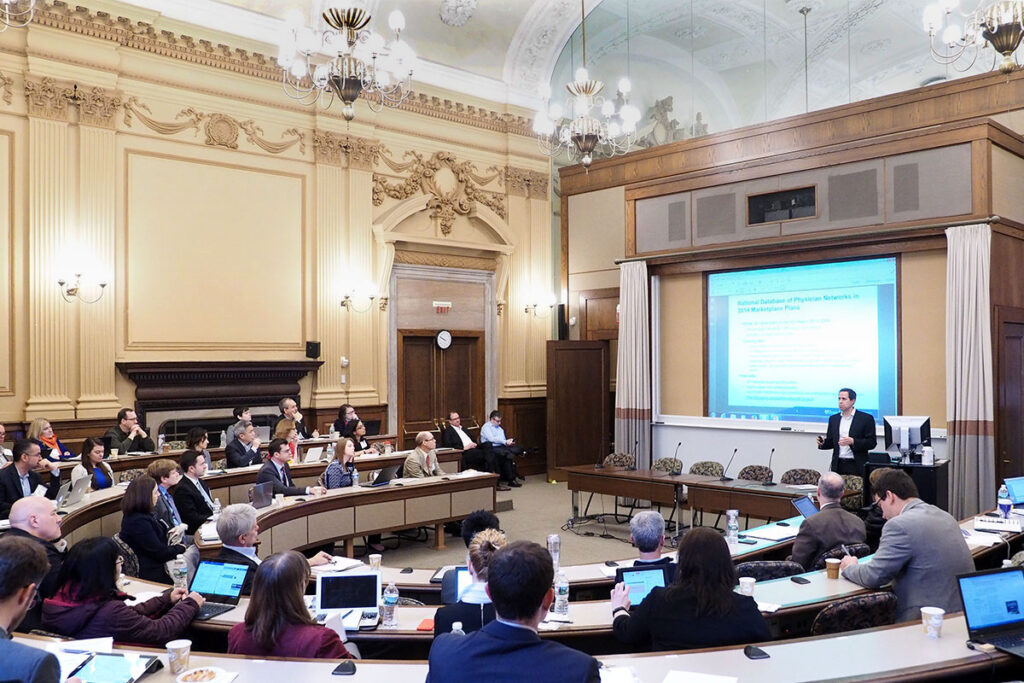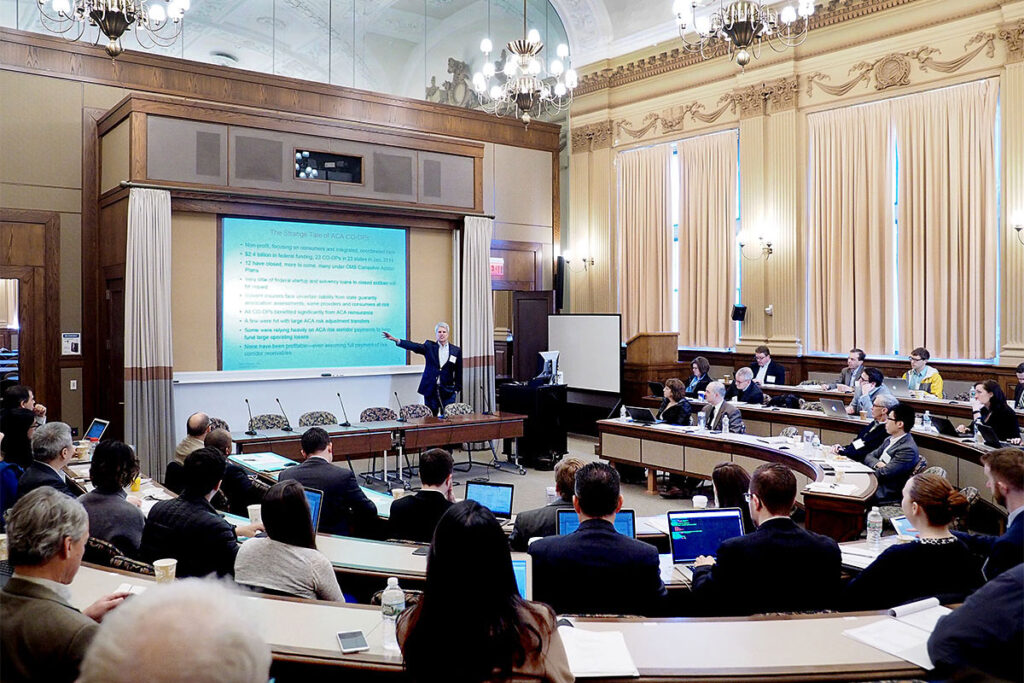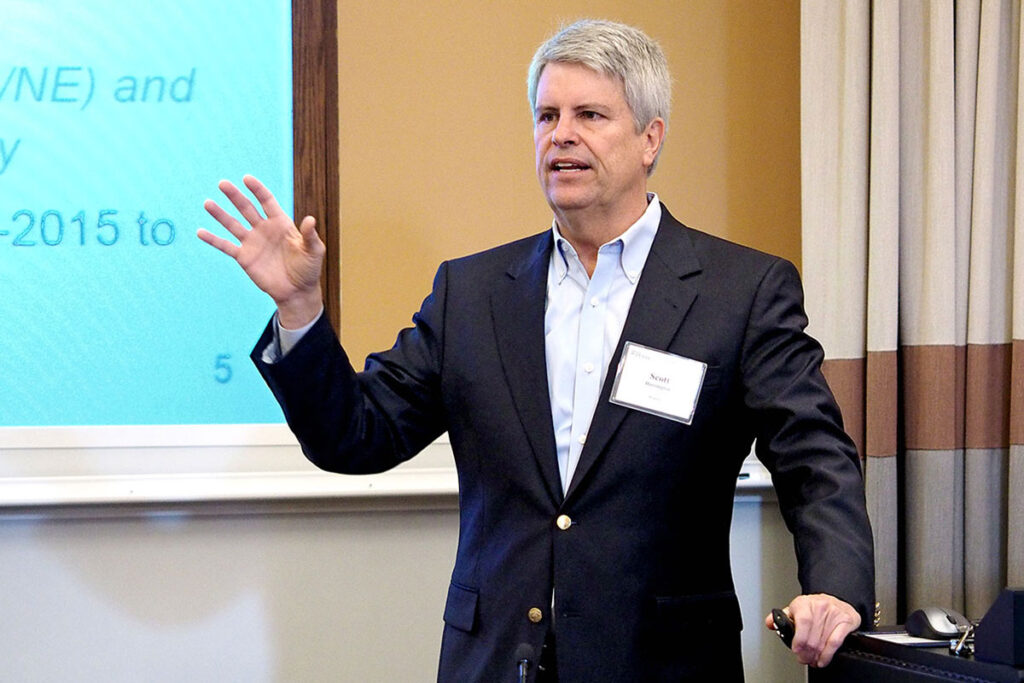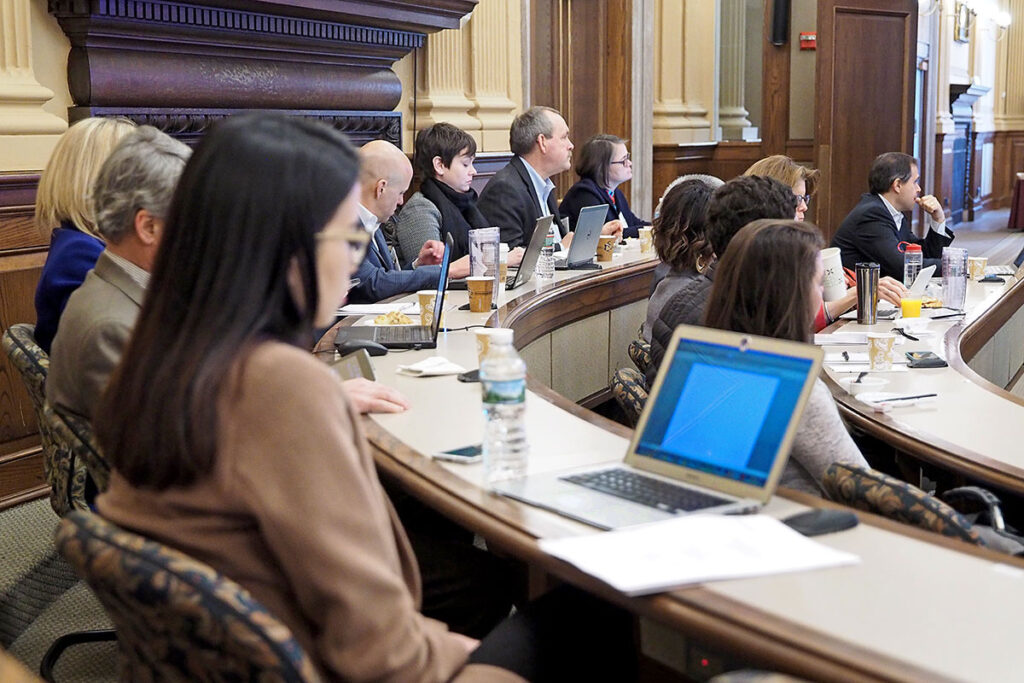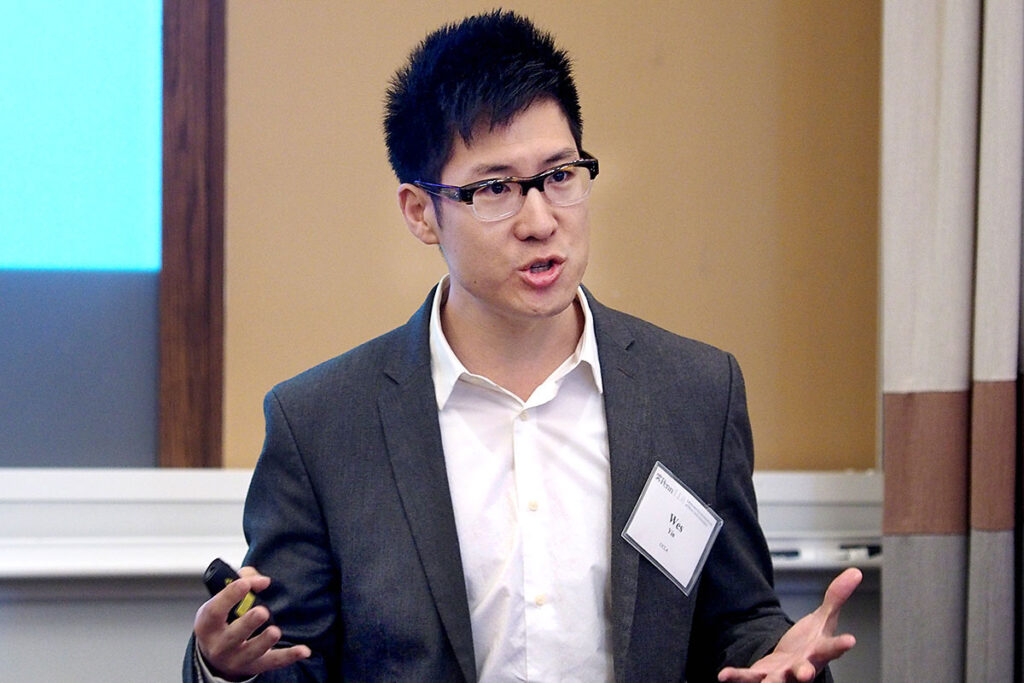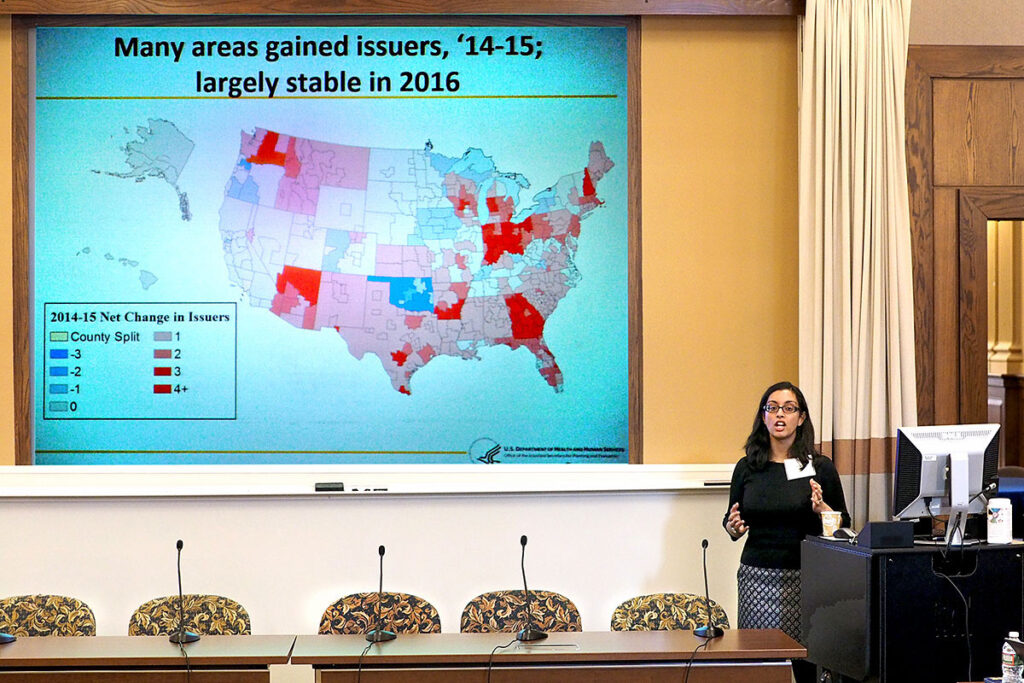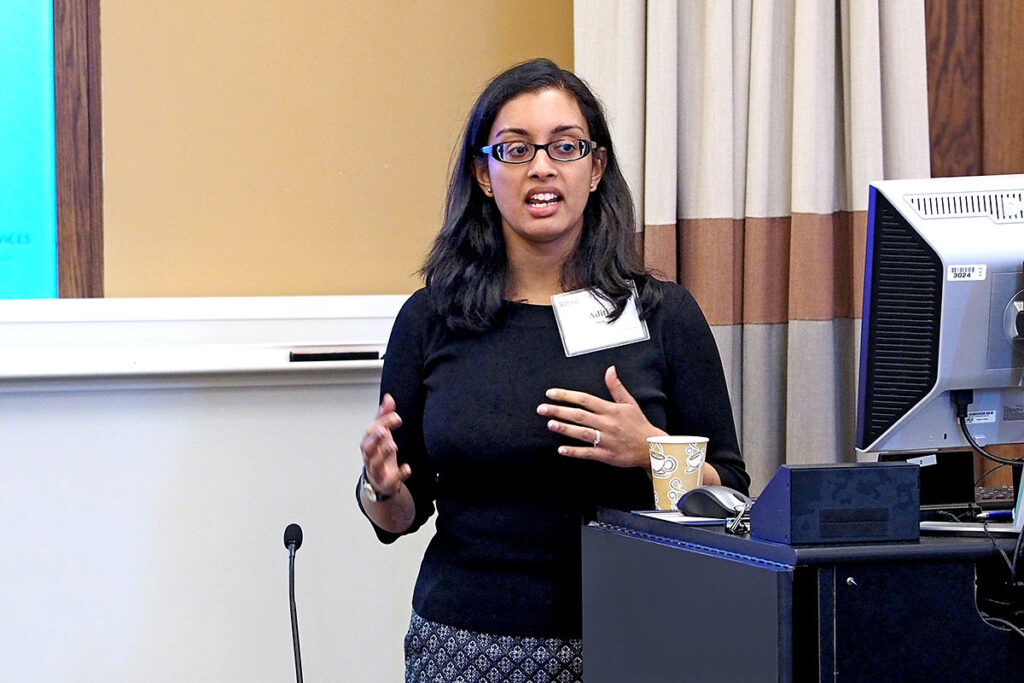News
LDI 2016 Health Insurance Exchanges Conference Photo Page
Attendees Note Overall Improvement But Are Wary of Wild Card Presidential Election
The fourth annual Leonard Davis Institute of Health Economics (LDI) Health Insurance Exchanges Conference drew an audience of academics, government insurance officials and insurance professionals from across the country. Co-sponsored by the Princeton University Center for Health & Wellbeing and supported by the Robert Wood Johnson Foundation, the sessions were hosted in venues at the University of Pennsylvania Law School (above). Penn Law Professor and LDI Senior Fellow Tom Baker, JD, who co-leads the LDI Health Insurance Exchanges Research Group, noted the gathering’s mood “was upbeat because the technology is mostly working. People are enrolling. There are measurable declines in the uninsured. And the data regarding the exchange population are coming into clearer view. The wild card, of course, is the presidential election.”
In the “View From The Exchanges” panel, Carolyn Quattrocki (above, left), Executive Director of the Maryland Health Benefit Exchange discussed her state’s website decision architecture. Seated next to her is panel moderator Heather Howard, JD, Lecturer in Public Affairs at Princeton University’s Woodrow Wilson School. Above, right is a view of the panel in session in the Fitts Auditorium at the University of Pennsylvania Law School. “Everyone has always agreed that consumers need more decision support,” said Tom Baker of the consensus of exchange officials. “What’s different now is that the basic technology is working well enough that exchange directors can focus on it.”
In six panels over two days, the conference addressed issues ranging from how the exchanges are integrating with Medicaid to relationships between states and the federal marketplace website. Above, left at a panel is Jessica Altman, MPP, Chief of Staff of the Pennsylvania Insurance Department. Above right is Amy Dowd, CEO, New Mexico’s BeWellNM Health Insurance Exchange and former Executive Director of Idaho’s Health Insurance Exchange. Tom Baker pointed out that the “relationship between the states and Healthcare.gov remains very much up for grabs.” He said some states have had good reason for switching to Healthcare.gov. “But,” he continued, “improvements in exchange technology, complaints about the fees Healthcare.gov charges, and a general lowering of the political temperature suggests that some states will switch in the other direction within the next few years.”
Appearing in a panel focused on the latest academic research insights is Daniel Polsky, PhD, (above, left) in the Law School’s Levy Conference Center, (above, right). Polsky, PhD, is the Executive Director of LDI, a Wharton School Professor of Health Care Management, and the primary investigator on a recent study of narrow networks and health insurance exchange pricing.
Recently called before the U.S. Senate to testify on the same subject, Scott Harrington, PhD, recapped his analysis of the collapse of many of the Affordable Care Act’s “Consumer Operated and Oriented Plans,” or CO-OPs. Harrington is a Wharton School professor of both Health Care Management and Insurance and Risk Management; Chair of the Health Care Management Department; and LDI Senior Fellow.
LDI Fellow Aditi Sen, PhD, spoke of the work within the U.S. Department of Health and Human Services Office of the Assistant Secretary for Planning and Evaluation. She is currently a Health and Aging Policy Fellow there, analyzing health insurance exchanges and the markets they serve.
